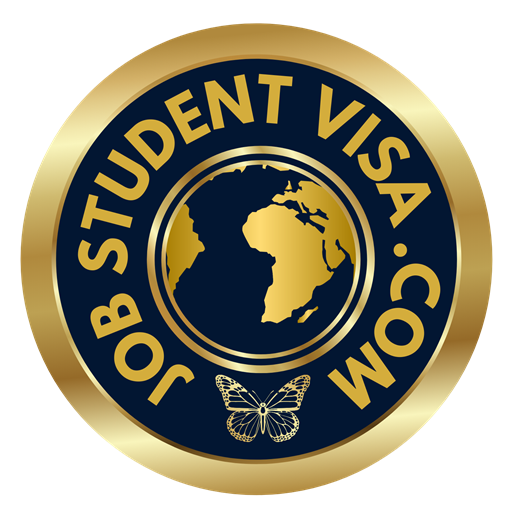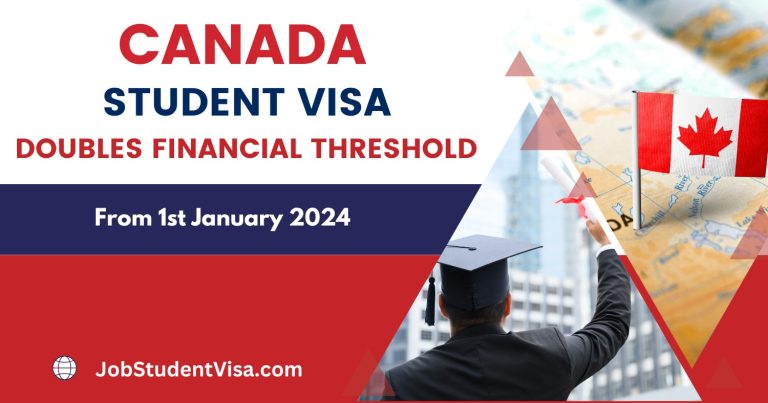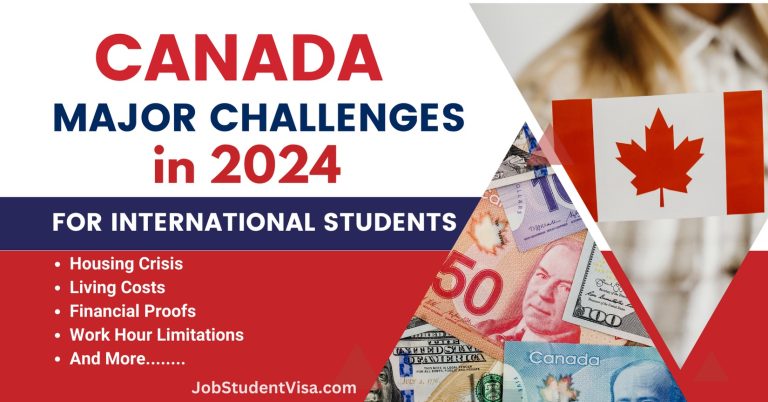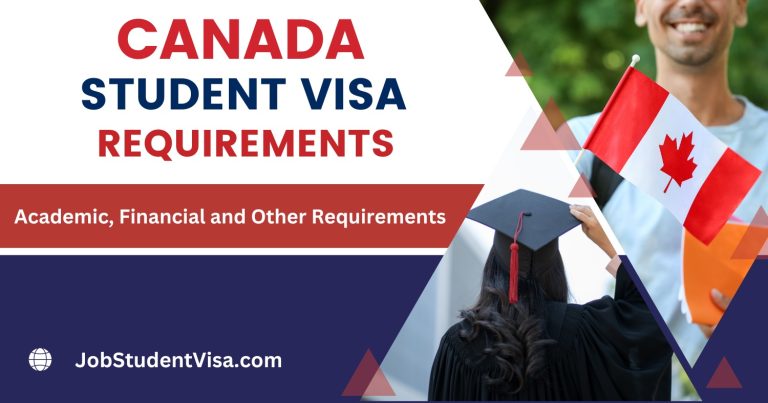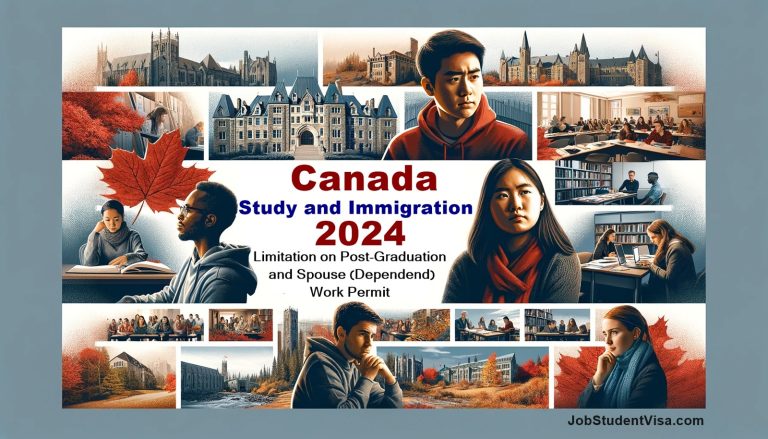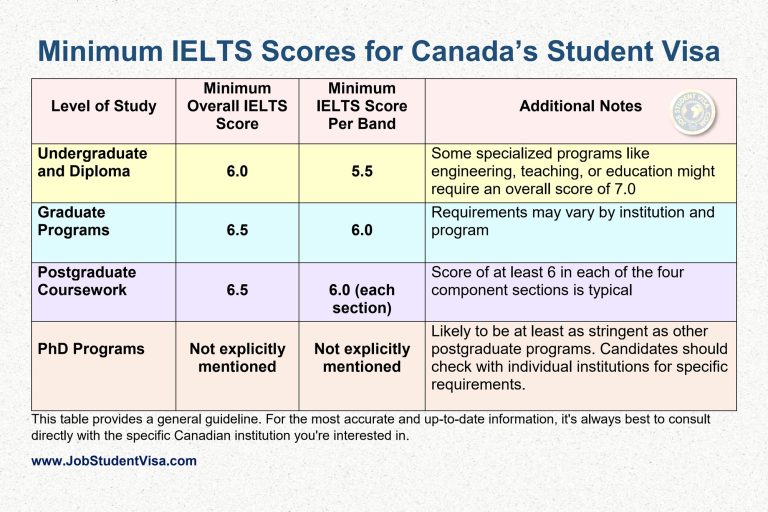Canada Introduces New Post-Graduation Work Permit Rules Effective November
Canada Introduces New Post-Graduation Work Permit (PGWP) Rules Effective November 2024
Toronto, October 2024 – The Government of Canada, through Immigration, Refugees, and Citizenship Canada (IRCC), has introduced major updates to the Post-Graduation Work Permit (PGWP) program. These new rules, which will come into effect on November 1, 2024, will have a profound impact on international students, especially those enrolled in college and non-degree programs.
Canada’s Immigration, Refugees and Citizenship Canada (IRCC) has announced updated rules for the Post-Graduation Work Permit (PGWP), set to come into effect on November 1, 2024. These changes bring significant implications for international students, especially those enrolled in college programs and non-degree courses.
Key Points of the New PGWP Rules
- Effective Date: The new rules will come into effect on November 1, 2024.
- Who Is Affected: Students applying for a study permit on or after November 1 will be subject to the new rules.
- University Graduates: Still eligible for a PGWP of up to three years, with no restrictions based on the field of study.
- College Graduates: Must complete programs in specific categories to be eligible.
- Eligible Programs: Includes Agriculture, Healthcare, STEM, Skilled Trades, and Transportation.
- Excluded Fields: Business Studies, Hospitality, and Tourism are notably absent from the eligible list.
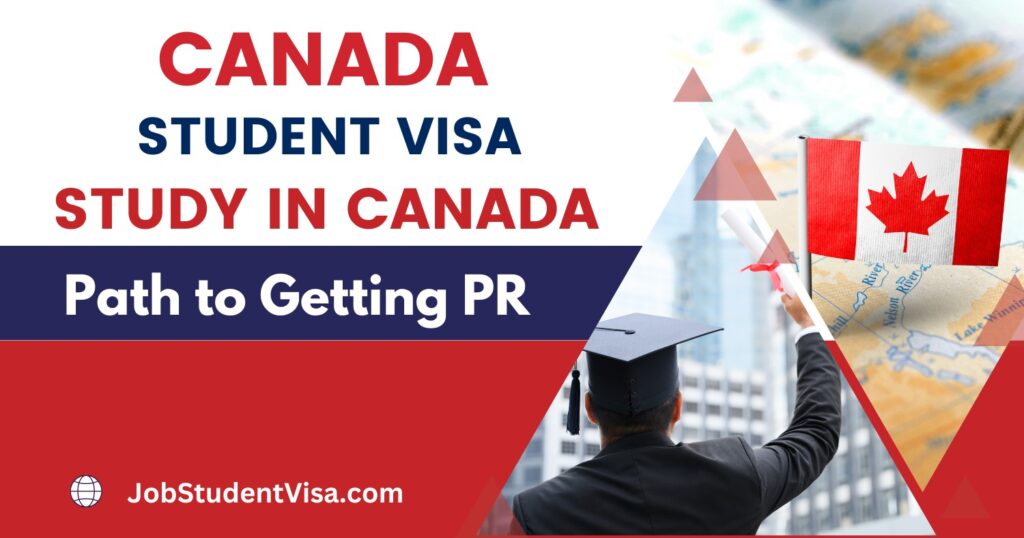
Who Will Be Affected by the New Rules?
Students applying for a study permit from November 1 onwards will need to follow the new rules. Those who have applied for or received their study permits before this date will still be eligible for the PGWP under the existing regulations. This update directly impacts college graduates and those enrolled in non-degree programs, introducing a revised eligibility framework for securing a post-study work opportunity in Canada.
IRCC has confirmed that university graduates will still be eligible for a PGWP of up to three years without restrictions based on the field of study. However, college graduates will face new eligibility requirements, with only select programs qualifying for PGWP under the revised rules.
New Eligibility Criteria for College Graduates
Starting November 1, college graduates will need to complete programs that fall within specific categories to be eligible for the PGWP. IRCC has listed 966 programs, focusing primarily on:
- Agriculture and Agri-Food
- Healthcare
- Science, Technology, Engineering, and Mathematics (STEM)
- Skilled Trades
- Transportation
Popular fields among international students, such as Business Studies, Hospitality, and Tourism, are notably absent from this list, which could potentially impact many international students’ career prospects in Canada. The exclusion of these traditionally popular courses is expected to have a substantial effect on foreign students looking to work in Canada after graduation.
The new regulations are designed to align with Canada’s labor market needs, prioritizing fields that are currently experiencing a skills shortage. The government aims to attract talent in areas that are critical to the country’s economic growth and future development. By focusing on STEM, Healthcare, Skilled Trades, and Agriculture, Canada hopes to address the gaps in the workforce and support key industries that contribute significantly to the national economy.
Key Takeaways for Students:
- Program Choice Matters: Only students in approved programs will be eligible for PGWP.
- STEM and Healthcare Prioritized: These fields are seen as crucial for Canada’s economic future.
- Impact on Business and Hospitality Students: The exclusion of these programs may discourage some students from choosing Canada.
Impact on Students and Institutions
The decision to limit PGWP eligibility has raised concerns among educational institutions. Colleges, especially those that have a high intake of international students, are particularly worried about the potential repercussions. Students currently enrolled in programs that are no longer listed are also experiencing increased anxiety over their future prospects in Canada.
Concerns Raised:
- Educational Institutions: Colleges are worried about reduced enrolments and financial stability.
- Students: Many students feel uncertain about their future, especially those in excluded fields.
- Economic Impact: International students significantly contribute to the local economy, and a drop in enrolments could have adverse effects.
Karen Dancy, Director of Recruitment and International at Olds College, commented on LinkedIn, emphasizing the notable absence of Hospitality from the approved list, labeling it as “devastating” for students in rural and remote areas. The exclusion is also a setback for many communities that rely on international students for economic contributions.
Similarly, Marketa Evans, President and CEO of Colleges Ontario, echoed these concerns in a letter addressed to IRCC Minister Marc Miller. She pointed out the lack of provincial consultations and voiced worries about the absence of a cohesive national labor market strategy to address local employer needs.
Educational institutions are not the only ones concerned. Many students feel disillusioned, especially those who had planned to work in fields now excluded from the PGWP eligibility list. The lack of clarity around which programs will remain eligible and which will not has caused confusion, and many students are reconsidering their future plans. Some are even looking to other countries for their education, where post-study work opportunities might be more accessible.
The changes also impact the revenue streams of colleges, particularly those that have relied heavily on international student enrolments. Programs in Business Studies, Hospitality, and Tourism have historically attracted large numbers of international students, contributing significantly to the financial stability of many institutions. With these programs excluded from PGWP eligibility, institutions may see a decline in international student applications, affecting their financial health.
Language Requirements for PGWP
Besides meeting academic requirements, international students aiming for a PGWP must now fulfill specific language benchmarks. Applicants must demonstrate their English or French proficiency through approved language assessments.
Language Requirements:
- University Graduates: Canadian Language Benchmark (CLB) score of 7 in English or an equivalent Niveaux de Compétence Linguistique Canadiens (NCLC) score of 7 in French.
- College Graduates: CLB or NCLC score of 5 across reading, writing, listening, and speaking.
These language requirements are intended to ensure that international graduates can effectively integrate into the Canadian workforce. The ability to communicate proficiently in one of Canada’s official languages is seen as a critical factor in job readiness and employability. However, these requirements may pose an additional hurdle for some students, particularly those from non-English or non-French speaking countries who may struggle to meet the language benchmarks.
The language requirement change is also seen as a measure to improve the quality of the workforce entering Canada. By setting a higher language proficiency standard, the government aims to ensure that graduates are not only skilled in their field but also able to communicate effectively in a professional environment. This move is expected to benefit both employers and graduates, leading to better job matches and improved workplace outcomes.
A Decline in Eligible Graduates
With these new regulations, the number of international students eligible for a PGWP is expected to decline significantly. According to a report from The Toronto Star, in the first half of this year, over 105,000 international students were granted PGWPs, with 64% of them being college program graduates. With the new eligibility rules, a substantial proportion of these graduates, particularly those in Business Studies and other excluded fields, will no longer qualify for a work permit.
Implications:
- Labor Market Impact: Many international students fill crucial roles in industries facing labor shortages.
- Reduced Eligibility: The decline in eligible graduates could exacerbate gaps in sectors like hospitality and business services.
- Canada’s Reputation: Limiting PGWP eligibility may affect Canada’s attractiveness as a destination for international students.
Furthermore, the new PGWP rules may impact Canada’s reputation as a desirable destination for international education. For many students, the ability to work in Canada after graduation is a significant factor in their decision to study here. By limiting PGWP eligibility, Canada risks losing prospective students to other countries that offer more flexible post-study work options.
The reduction in eligible graduates will also have economic consequences. Each year, international students add billions of dollars to the Canadian economy, not just through tuition fees, but also via living expenses, travel, and other expenditures. A decline in international student enrolment could lead to reduced economic activity in cities and towns across Canada, particularly those that rely on student populations for local business growth.
Impact on Canada’s Immigration Pathways
The new PGWP regulations are likely to influence Canada’s broader immigration landscape as well. Many international students see the PGWP as a stepping stone to permanent residency (PR) in Canada. By gaining work experience after graduation, they enhance their Comprehensive Ranking System (CRS) score, increasing their chances of being selected for PR through the Express Entry system.
Key Considerations:
- Fewer Pathways to PR: With fewer students eligible for the PGWP, the pathway to PR may become more challenging.
- Alignment with Immigration Priorities: Emphasis on STEM, Healthcare, Skilled Trades, and Transportation programs aligns with Canada’s broader immigration priorities.
- Focus on High-Demand Skills: By prioritizing these fields, Canada is ensuring that its immigration system attracts the talent that is most needed.
With fewer students eligible for the PGWP, the pathway to PR may become more challenging for certain groups of graduates. Canada has been depending significantly on skilled immigration to tackle demographic challenges like an aging population and declining birth rates. A decrease in the number of former international students transitioning to permanent resident status could impact the country’s ability to meet its long-term immigration goals. Given that Canada has relied heavily on international talent to address these demographic issues, a reduction in the number of international students gaining permanent residency could pose challenges to achieving its immigration targets.
However, the emphasis on STEM, Healthcare, Skilled Trades, and Transportation programs aligns with Canada’s broader immigration priorities. Graduates in these fields are often in high demand, and by prioritizing them for PGWP eligibility, Canada is attempting to ensure that its immigration system remains focused on attracting the talent that is most needed. For students in these fields, the new regulations could mean a more streamlined pathway to PR, as their skills align closely with Canada’s economic needs.
Conclusion
Canada’s new PGWP regulations will change the landscape for international students, particularly those enrolled in college-level and non-degree programs. These changes are designed to align with the country’s evolving labor market needs, focusing on fields that are experiencing skill shortages. However, the exclusion of traditionally popular fields such as Business, Hospitality, and Tourism is causing concern among students, educational institutions, and employers alike.
Summary of Changes:
- New Program Eligibility: Only specific fields like STEM, Healthcare, Skilled Trades, and Transportation are eligible.
- Language Requirements: Increased language proficiency requirements for both university and college graduates.
- Impact on PR Pathways: Fewer students may qualify for PGWP, affecting their chances for permanent residency.
The new rules present both challenges and opportunities. For students in the approved fields, the updated regulations may provide a clearer pathway to permanent residency and career opportunities in Canada. For others, however, the restrictions may limit their options and force them to reconsider their study and career plans.
Educational institutions need to adjust to these changes by prioritizing programs that are likely to attract and retain international students under the new regulations. Meanwhile, students must carefully consider their program choices and understand how these changes could impact their post-graduation opportunities.
As these new rules take effect, it remains to be seen how they will influence Canada’s attractiveness as a destination for international education. To keep the country competitive in the global education market, careful monitoring and adjustments will be needed to address the broader impacts on student enrollment, institutional revenues, and Canada’s immigration system, despite the commendable focus on aligning education with labor market needs.
The November 2024 PGWP rule changes reflect Canada’s focus on promoting education and employment in high-demand fields such as healthcare, STEM, and skilled trades. However, the exclusion of popular programs like business, tourism, and hospitality raises significant challenges for students and educational institutions alike.
As the new regulations take effect, prospective international students, institutions, and employers will need to adjust to the evolving landscape. Canada’s ability to attract global talent and maintain its reputation as a leading destination for higher education may ultimately depend on how well these policies align with market needs and student interests in the years to come. Choosing STEM subjects will be wise incase of getting PR in Canada.
